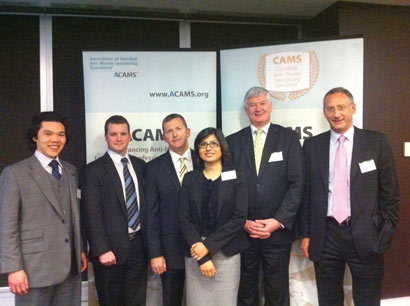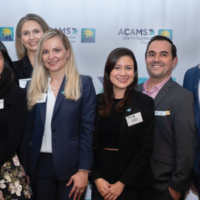
It has been a busy winter for the Australasian Chapter with several events plus some major regulatory changes both in Australia and New Zealand. The first event of the winter was held in May. The event opened with a warm welcome from John Alfano (PayPal Australia) who kindly provided us with the venue and facility for the presentation. Graham Gorrie (Sydney programming director) introduced Peter Cvetkovski from Risk Associates who gave an overview of the Payment Card Industry Security Standards Council (PCI SSC) and the assessment process. It was a lively discussion centering on the 12 major PCI requirements for validation. All of the compliance areas include basic security rules that most merchants and service providers should already have in place, or have a familiarity with them when audited. The issue was raised on why service providers have an obligation to comply when it is not a legislative requirements, rather it is a standard mandated by the major payment card brands (Visa, MasterCard, American Express, Discover and JCB). In order to combat fraud and money laundering, there is greater need to place reliance on merchants processing electronic payments both in the online and physical environment. Peter went on to describe the various control objectives relating to application change management (particularly around segregation of duties in production and testing), user access controls, physical security and most importantly, documentation. The assessment places emphasis on documented process described and the actual process taking place. Where there is a discrepancy found, the organisation under review will need to provide documentation to explain why and steps to be taken to meet the control objectives. The room was filled with a lively discussion during Q&A and finished with drinks and canapés sponsored by PayPal Australia. We thank John Alfano and PayPal Australia for the kind hospitality.

Sydney was also the venue of the July chapter event. Over forty chapter members and guests were present to hear speaker Detective John Watson, of the Fraud Squad, State Crime Command, NSW Police conduct a session on "Suspicious Matter Reporting and the Investigative Process." After the presentation there were many questions on the various aspects of the NSW Police's involvement with suspicious matter reporting. The board would like to thank Ernest & Young for hosting the successful event.
The Australasian Chapter was fortunate to have 12 attendees from Australia attending the 3rd Annual ACAMS Asia-Pacific conference in Beijing on June 13-14. Eight of whom are members of the Australasian Chapter and three of the eight are chapter board members. A range of speakers presented, including regulators, AML officers and law enforcement personnel.Several key insights were gained into the specific trends arising from the Asia-Pacific region, including the high preponderance of family members linked within laundering cases investigated by the Taiwan FIU, the emerging threat of e-cash providers as customers to mainstream banks due to the inability to see through to underlying customers, and several interesting statements by the Anti-Money Laundering Bureau, People's Bank of China, underlining the enormous resources and attention being paid to this issue within the country—not least that last year over 250 punishments were imposed against financial institutions for AML control failures. The day long workshops were adjudged a particular success with much interaction during the case studies, and debates over what makes a successful AML program (and officer) adding heat to the proceedings as presenters picked apart responses to scenarios to show that the obvious 'compliance officer' response was not always the best response for the organisation! As always, the ability to mix informally with AML professionals was in itself of great value, with many exchanges of good practice, news of emerging threats and typologies being experienced by various delegates.The next ACAMS APAC conference is scheduled to be held in April 2012. Be sure to mark this date on your calendar.
On the regulatory side, New Zealand now has its AML/CTF Regulations. There are four sets of Regulations covering:
- Definitions relevant to reporting entities
- Requirements and compliance details
- Exemptions available
- Forms to apply for ministerial exemptions
As expected, the commencement date has been set at two years from today—reporting entity obligations under the Act will commence on 30 June 2013.
The first NZ Code of Practice is not far away. It will deal with identity verification matters.
To coincide with the new New Zealand Regulations a webinar has been scheduled for Friday, 9th September.
In Australia, the AML/CTF Act has been amended to take account of the AUSTRAC costs recovery program plus the tighter regulation of remittance providers. The Autonomous Sanctions Act, 2011 has been enacted.
The board again has seen several changes in the past few months. The board would like to thank those retiring from the board, Bill Brown and Tim Land, for their contribution in helping the Australasian Chapter grow. The board is very pleased to announce that Cassandra Hewitt of ANZ Bank has agreed to join the board as programming director (Melbourne).










